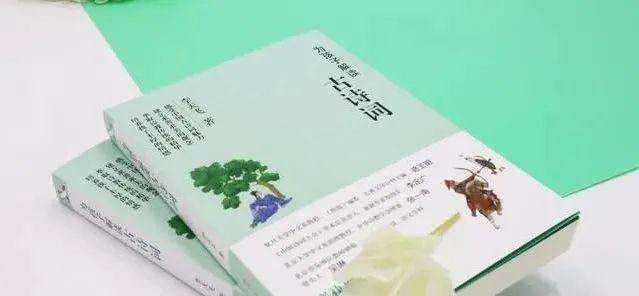
When appreciating poetry, we must first know what genre the poem is. My previous understanding of the genre was more inclined to what kind of thoughts and feelings this poem was trying to express.
But in a more interesting form, the book exemplifies the differences between ancient styles, music houses, and song lines involved in ancient poetry. The ancient style is obscure, the music house is similar to a kind of singing tone of the filler, and the song line is the expression of the body's thoughts.
In addition to the difference in genre, we also need to read it to see if it is catchy, which leads to the problem of rhyme. Compared with long poems, whether it is the solemnity and thickness of a rhyme to the end, or the smooth and lively of appropriate rhymes in the middle, it must be flexibly applied according to the bias of the theme.
Too deliberate, but lack of the deep charm of Xingfa moving. There are more obvious distinctions between different styles such as "farewell", "side plug", "pastoral", "dengguan", "nostalgia" and so on, among which "irony" tells the pros and cons of officialdom, and "seasonal festival order" includes all kinds of things.
In my limited memory, Li Bai's boldness and Du Fu's depression are in stark contrast, but in the exposition of the seven-word poem and the five-word poem in this book, I can see Li Bai's nostalgia for the genre, and it is precisely the realist Du Fu who is trying to innovate.
The convergence and politeness of the five laws, the frankness and openness of the seven laws, have become more and more precious in the tide of the times. Regarding the definition of absolute sentences, it is more like the written body of folk song proverbs, the five words are formed earlier, the seven words are closer, and the refined and simple five absolutes are only different from the intimate and long seven absolutes in terms of artistic style.
How does poetry express feelings? If it is a person who has never written poetry, then the appreciation of their poetry is more focused on the emotional release in a specific situation; but if it is a creator who is longer than poetry, then the use of rhyme and technique will be more elaborate, and the writing method will be more subtle and tactful, such as in the poem "Near the Water Zhang Shuibu", the author borrows the incident of the girl's makeup to please the in-laws to carefully test the aesthetics of the chief examiner.
When we analyze verses, we also transform from the representation of objects into the immersion of images. Not every object can be felt empathy, but we should try to build a resonance and read it with piety and solemnity.
Even after a thousand years, it will still gain the traction force of the time, and I think this is the characteristic of good poetry, which can always retain the temperature in the inexorable river of history.
The blessing of the common "fu", "ratio" and "xing" in ancient times in the expression effect makes the poetry more beautiful and textured in the process of dissemination. If we carefully study the creation of popular songs, it is not difficult to find that this way of presentation in the past is still applicable to the aesthetics of the current Chinese people, and even in speeches and writings, in order to render the situation, it is often unconsciously quoted.
So the initial appreciation of poetry may be our innate natural taste. But if we want to go straight to the heart of the ancients, we also need to have the ability to decode consciously to establish an emotional connection with them.
The mood of poetry, if narrated in vernacular, may require a lot of space, but good poetry can often use short numbers to create a long, dynamic sensory experience, and each word is highly condensed, naturally coherent, and the emotional and engaging scenes are sublimated in the collocation of words.
But often poets do not express their lyricism directly for a certain purpose, but rely on each other with the help of a variety of things and very emotional objects, which are interdependent and complement each other.
But the object itself is changeable, in order to shape the mood, the poet needs to deliberate on every word, those hidden in the verses of the finishing touch, so that the whole poem becomes a noble art, every thing has a rich footnote in the author's pen.
"Spring breeze and the south bank of the Green River" let us see the craftsman spirit of refining characters, "birds stay in the pond by the tree, monks knock on the door under the moon" and let us witness the one-word relationship between poets. Reading such a verse is like enjoying a poetic video, or simply making an association in our minds. The picture you can think of may be the poet's voice.